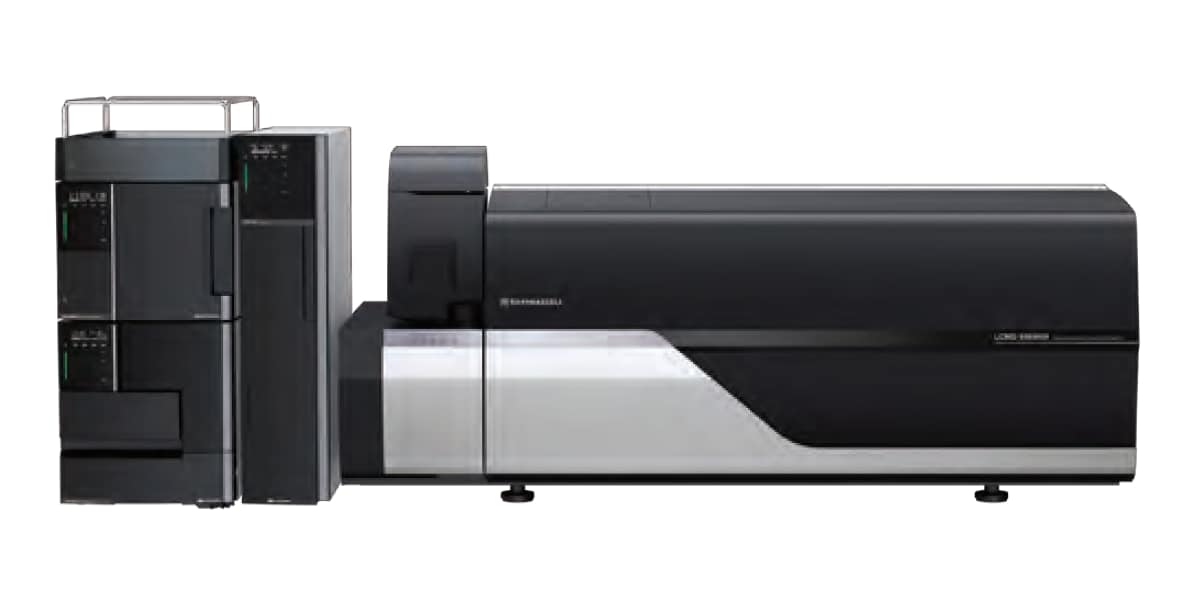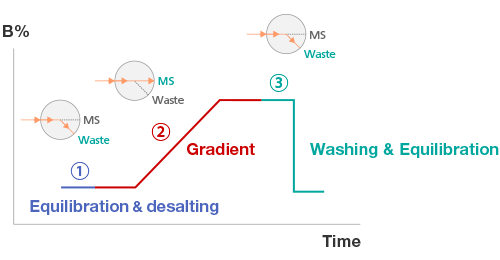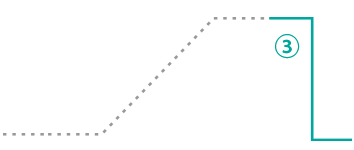2 flow-paths, 1 LC for a Fast-paced Lab

Knowing the Return-on-Investment (ROI) period when introducing and operating a liquid chromatograph instrument enables efficient utilization of management resources. The shorter the ROI period, the more quickly the invested funds are recovered, thus contributing to the company’s profitability.

To speed up the ROI, it is necessary to make the most of the instrument’s functions and ensure efficient operation. By increasing the number of channels, you can measure more samples and improve the rate of return on investment.
Enter your current gradient with a single LC flow path
-
①How long is your desalting time at the beginning?
mins
-
②How long is your MS acquisition time?
mins
-
③How long is your wash time at the end?
mins
-
④How many samples do you run per week?
-
⑤Your revenue per sample (USD$)
Estimated results from doubling your flow paths*1
|
Conventional Single Channel  |
Multiplex Dual Channels  |
||
|---|---|---|---|
| Average Run time per sample (in mins)
(e.g., 4 samples in 40 mins would be averaged to 10 mins run time per sample) |
mins/sample |
mins/sample |
Shorter time for an operator to check SST and a calibration curve at the beginning of a batch |
| Time freed up on your instrument per week
(〇〇 hours more available per week on an instrument) |
rs freed up |
Transfer tests from other heavy-load instruments | |
| Increase in throughputs
(〇〇 more samples per week) |
More samples |
Sales team to acquire new clients for more samples | |
| Potential Increase in annual revenue
(If the time saved is filled with extra samples) |
USD more |
Earlier return-on-investment on the instrument |
*1 These results are not guaranteed numbers.
The actual results vary depending on a method requirement.


